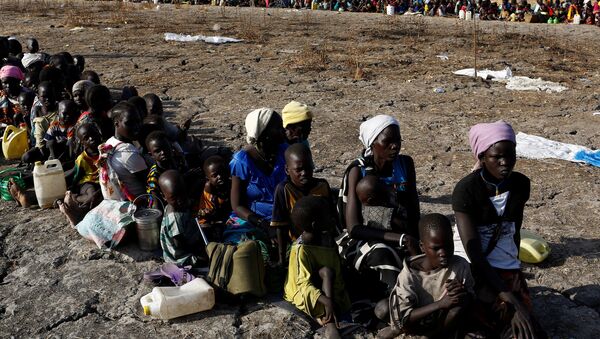The annual report, titled "The State of Food Security and Nutrition in the World," states that 815 million people are chronically undernourished in 2016, which is 38 million more than 2015, accounting for 11 percent of the global population. Even though this is still less than world hunger in 2000, when 900 million people didn't have enough food, this is still "cause for great concern."
Cindy Holleman, a senior economist at the Food and Agriculture Organisation, explained that rises in man-made conflict and climate change, which usually occur alongside economic slowdowns, make it harder for poor people to get access to food.
"Whether it has been a blip and it's going to go back down again, we're not sure," said Holleman. "But we're sending warning signals. We are sending a message that something is going on."
"If you look at the 815 million [chronically undernourished] people, 489 million, or 60 percent of them, are located in countries affected by conflict. Over the last decade we're seen a significant increase in conflict. We also see that conflict combined with climatic effects is having a significant effect," she added.
This means that more than half of the world's hungry are in areas with violent conflicts that have destroyed local agriculture and crippled access to food supplies. The countries most affected include South Sudan, which is facing a famine, as well as Nigeria, Somalia and Yemen, all of which are struggling with food shortages.
"This is a shame. This is an indictment of humanity," the head of the World Food Program, David Beasley, said.
Oxfam's head of food and climate change also echoed Beasley, saying, "This has set off alarm bells we cannot afford to ignore: we will not end hunger and all forms of malnutrition by 2030 unless we address all the factors that undermine food security and nutrition. Securing peaceful and inclusive societies is a necessary condition to that end."
In addition, even though malnutrition statistics are often interpreted as food scarcity, undernourishment also includes obesity.
According to the report, almost 41 million children under the age of five were overweight in 2016.




